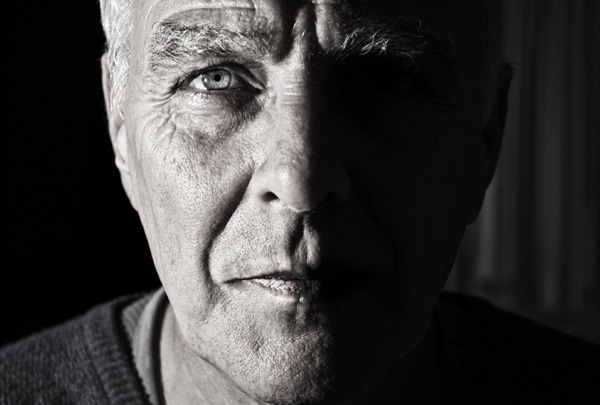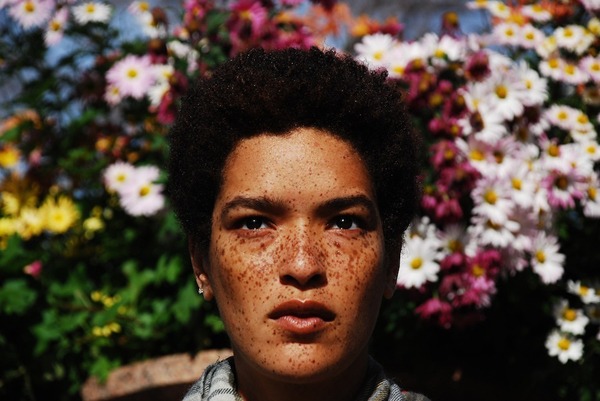Authenticity in personal branding
Personal brands have become a big hype around the world these days. Wherever you go, everybody seems to have one. Nonetheless, are they not robbing our personalities of our true authentic selves? In what way creating our brands in professional and personal life pulls us away from our true selves and from others? How to start being real and constituting an authentic identity both online and offline?

It’s a trademark, not a trademask!
In recent years, the concept of personal brand has overflown the domain of professional development.
What is a personal brand? This is an intentionally and consciously created image of an individual and the impression about themselves that they want to establish in other people’s minds. In other words, it is a set of associations that make up a consistent and coherent image of who you are in the eyes of your target audience.
Thanks to our personal brand, we can consciously influence what others think about us and preserve a positive image of ourselves in their consciousness. But is there place for authenticity in personal branding?
Of course, creating these images isn't appling only to our professional life, but has a lot to do with our personal relationships. It’s common for us to unconsciously create a specific image of ourselves in order to be viewed by our friends and relatives in a certain way. The focus of this article is more on creating a personal brand in the professional domain, but everything I write later on also relates to projecting a specific personal image in the sphere of your private life.

Back in the days, I was on the path towards building a personal brand myself.
I thought it was essential in order to become successful in my field. Still, I approached the whole thing half-heartedly. The idea of creating a brand of the real person I am, who has a name and all that, had always bothered me, and it was only some time ago that I understood why.
Instead of bringing authenticity in personal branding, by creating my personal brand I tried to invent an artificial entity.
Something that was based on who I really am, but is not a genuine and accurate reflection of the real me. It was just a glossy facade that was supposed to speak volumes of what a great expert I am and help me attract potential clients.
Think about it for a moment. Have you ever done the same? Perhaps you do it without even being aware? Or maybe you do it like I do - consciously, but with the intention not to create a false self-image, but simply to emphasize my strengths?
Do you put censorship on what you share in public in order to get the approval of others?
Do you worry about what other people would think if they knew certain facts about you?
It was a very pleasant feeling when a few years ago I realized I had managed to establish a certain image of myself in the minds of my readers (image of a resourceful and professional coach, who is always happy and always right). At some level, it boosted my self-confidence. I identified with the image that I created. However, I could sense this feeling of falsity lurking deep down in my heart. The emotional discomfort it caused within me effectively discouraged me from maintaining and developing my personal brand. It happens because of lack of authenticity in personal branding.
This feeling of inauthenticity, or discrepancy between my actual self-image and my self-brand, was the first but not only clue that led me to change my mind about personal brands.
Creating distance
At conferences, workshops and other meetings, I would meet people who already knew me from my online presence (mostly from my blog and my Facebook profile).
Whenever I talked to them, I felt distinctively as if they had referred not to me, the person standing in front of them, but to the image of me they kept fixed in their minds. To the very image I had put into their heads by creating my personal brand. It wasn’t a problem during small talk. It was nice to hear some flattering words of affirmation, followed by Q&A time with me playing the role of “an expert".
However, whenever I had longer meetings or ran faraway workshops (during which I spent the whole time for 3 days together with the group), something strange would take place. Some people would share with me very interesting observations they made at meeting me for the first time in person and getting to know me better. They said that they experienced a kind of disappointment and thought: "Wait a sec, so he’s not that perfect after all? Is this supposed to be my guru? How come?"
The image they had built in their heads was falling apart. Interestingly, once they came to terms with this disappointment, they felt great relief to see that I am just a normal person, who, like everyone else, experiences a whole variety of human emotions and struggles with his own problems.

Where does this relief come from? When we idealize someone, we think of them as better than us, compare ourselves to them and, due to the contrast principle, feel inferior to them.
It is only natural that we don’t want to feel that way, so we tend to hide our flaws and not allow for authenticity (I found it a huge obstacle in my work. My job is to help people. Yet there’s no way to help someone who doesn’t feel comfortable enough to open up).
When the idealized image we have of a person is falling into pieces, suddenly the comparisons are no longer valid and we realize that the previously glorified person is - just like us - a regular someone. So we stop pretending and choose to be our true selves.
In this way, by building your image, you distance yourself from other people.
Creating specific associations about you in their minds pulls their projections of your person even further away from reality. If you want to make authentic relationships, you have to let people decide for themselves what they will think about you after interacting with the real authentic you.
The power of authenticity
When I finally came to terms with the fact that people store a false image of me in their minds, and that it is me who is responsible for it (e.g. by highlighting my advantages and hiding my weaknesses in the articles or posts I wrote and on my Facebook profile), I realized that it makes really no sense whatsoever. After all, we can avoid the stage of disappointment and the stage of reliefIt happens by moving on straight to building relationships based on authenticity and truthfulness. I put on authenticity in personal branding.
Of course, some people, in response to their needs of looking up to a guide or a leader, will idealize me and treat me like their guru, no matter what I do. However, by dropping the whole personal brand thing, I can at least diminish (perhaps even entirely eliminate) the discrepancy between how people see me and who I really am.

As I started to consider giving up on building my personal brand and just being myself in the public sphere of virtual space, I got scared.
Will my business not go down from it? Will people want to put their trust in someone who makes mistakes and hasn’t dealt with all his flaws yet?
The solution to this problem didn’t come to me at once. I tried, however, to make small steps on the path towards business-related authenticity, and I was surprised by the positive reactions from my readers. This is how I slowly began to realize that, in the world of ubiquitous deceit and empty promises, we look for real flesh-and-blood people, who have a whole range of both strengths and weaknesses.
Thanks to this insight, I came even closer to giving up on my online image and replacing it with my drive for authenticity.
What helped me to make a final and fully conscious decision about being more authentic in everything I do, was the work of Brene Brown, the author of the book "The Gifts of Imperfection". In her speech at one of the TED conferences, she said that authenticity is the result of letting go of who you think you should be so that you can become who you really are. Beautifully said.
Thanks to Brene, I understood that showing my weaknesses is not a weakness at all.
Quite the contrary, it is a strength. Showing your true self (regardless of the context: when giving a speech, talking to your partner or having a get together with friends) is a sign of great courage. In fact, projecting an image of someone we are not in order to hide what we don’t like about ourselves - this is weakness. It is our own fear of our deficiencies that makes us want to hide what is uncomfortable or unseemly.
Only then did it become crystal clear to me that writing about my failures, challenges and difficulties could become a great inspiration for others just as much as sharing about my discoveries, successes and dreams. When someone sees that we are all similar, they will understand that just like me, despite their imperfections, they can learn how to live a happier life.
